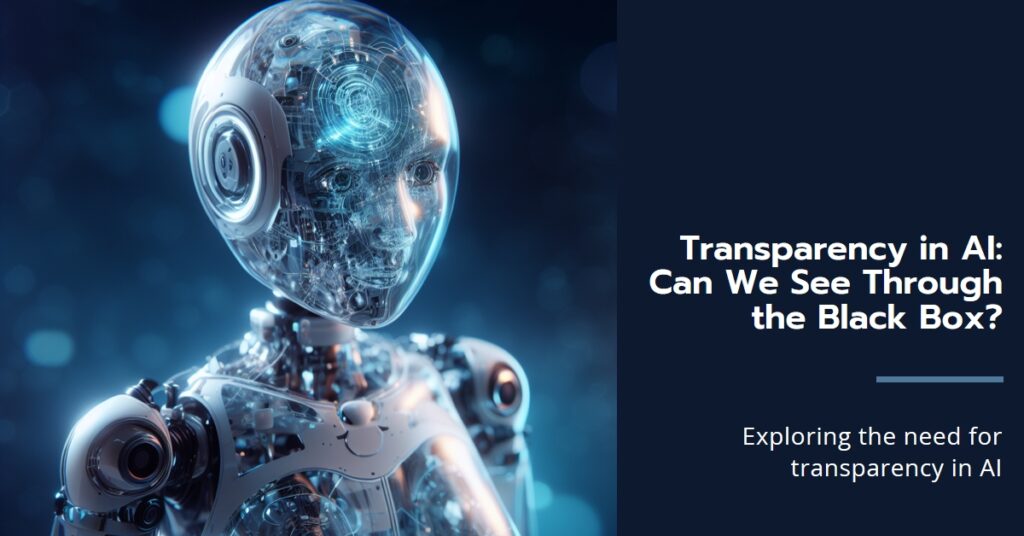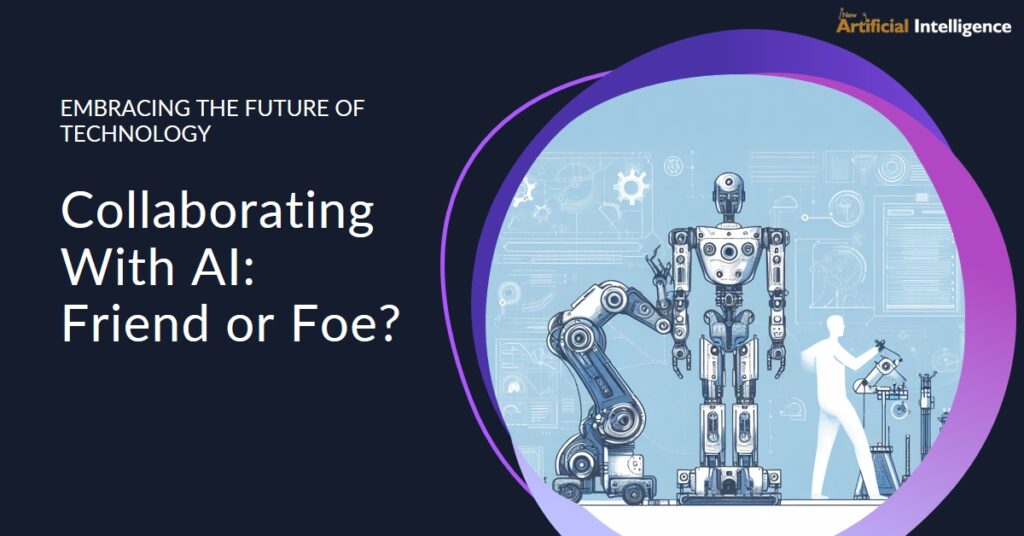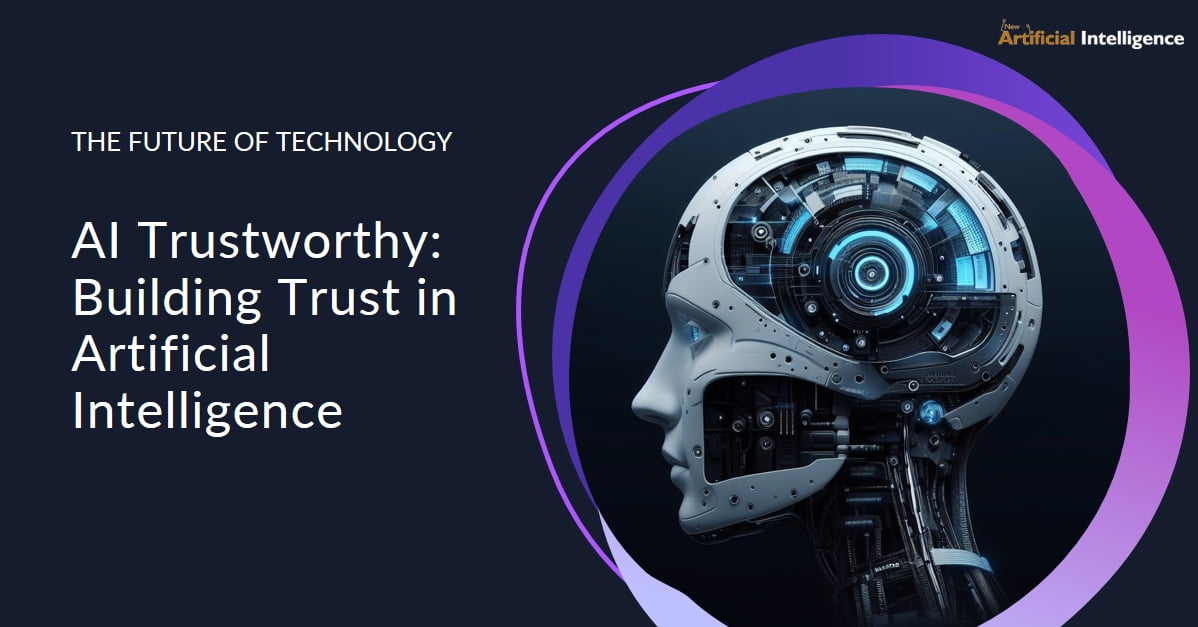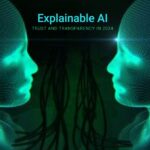Is AI Trustworthy? The Future of Technology
Artificial intelligence (AI) is no longer a thing of science fantasy. It’s interwoven into the fabric of our daily lives, from personalized online experiences to self-driving cars and medical diagnoses. But as AI’s influence grows, a crucial question looms: can we trust it?
This isn’t a simple binary “yes” or “no.” Like any relationship, trust in AI needs to be earned and nurtured. It’s a complex tapestry woven from transparency, accountability, fairness, and a shared understanding of its capabilities and limitations. So, let’s delve into this topic through 4 fundamental questions:

1. Can We See Through the Black Box? Transparency in AI
One of the biggest hurdles to trust is AI’s opacity. Many algorithms act like black boxes, churning data, and spitting results without revealing their inner workings. This lack of transparency breeds unease. How can we trust decisions made by a system we don’t fully understand?
Case Study: Demystifying Loan Approvals with Explainable AI
Fairness is crucial in lending, but traditional credit scoring models remain shrouded in secrecy. Imagine LoanBook, an AI-powered platform that uses explainable AI techniques. When a loan application is denied, LoanBook provides the applicant with a clear breakdown of the factors influencing the decision, allowing them to address any issues or misunderstandings. This transparency fosters trust and empowers individuals to navigate the loan process more confidently.
2. Who’s Holding the Algorithm Leash? Accountability in AI
With great power comes great responsibility. As AI makes increasingly impactful decisions, the question of accountability becomes paramount. Who’s responsible for its biases, errors, or even malicious uses?
Case Study: Algorithmic Bias in Facial Recognition: Holding Developers Accountable
Imagine Joy Buolamwini, a researcher who revealed racial and gender biases in facial recognition algorithms developed by major tech companies. This case sparked crucial conversations about algorithmic bias and the need for ethical development practices. As a result, many companies are now implementing fairer testing mechanisms and incorporating diverse perspectives into their development teams, demonstrating a commitment to accountable AI.
3. Does AI Play Fair? Building Equitable Algorithms
AI algorithms are trained on data, which sadly reflects the biases and inequalities of our world. This can lead to discriminatory outcomes, perpetuating existing injustices. How can we ensure AI promotes fairness and inclusivity?
Case Study: AI in Healthcare: Leveling the Playing Field for Underserved Communities
Imagine an AI-powered healthcare platform that analyzes medical data to recognize patients at risk of chronic diseases. However, traditional algorithms often overlook risk factors in underserved communities due to data biases. In response, healthcare providers are working with AI developers to incorporate data from diverse populations, ensuring the technology delivers equitable healthcare across all communities.

Should we fear AI as a potential overlord or embrace it as a powerful partner? The answer lies in collaboration, not competition. AI shouldn’t replace human judgment but augment it, amplifying our strengths and mitigating our weaknesses.
Case Study: AI-Powered Design Teams: Humans and Machines in Harmony
Imagine design teams where AI generates creative concepts and humans refine them with their artistic vision. This collaboration creates stunning design solutions that wouldn’t be possible without the combined power of human intuition and AI’s computational capabilities. This synergy demonstrates how humans and AI can work together to achieve remarkable results.
A Trustworthy Future: Building AI We Can Believe In
The future of AI is still ongoing. It’s shaped by the choices we make today. By appealing to clarity, accountability, justice, and partnership, we can build AI that is not only useful but also loyal. This journey won’t be easy, but the rewards are immense: a future where technology empowers humanity, fostering a more equitable and sustainable world.
So, the question isn’t just “is AI trustworthy?” It’s “how can we make it trustworthy?” Let’s engage in open dialogue, share best practices, and hold developers and policymakers accountable. Only through conscious effort can we earn the trust of AI and unlock its full potential for good.
FAQs:
Can AI ever be genuinely trustworthy?
Trust in AI is an ongoing process, not a destination. We can build and evolve AI that becomes increasingly trustworthy over time by addressing issues like transparency, bias, and accountability. It’s a continuous journey of collaboration and improvement.
Does using AI in everyday life automatically compromise my privacy?
Not necessarily. Responsible AI development prioritizes user privacy and data security. Look for platforms that offer clear data-handling policies and customizable privacy settings. Remember, awareness and informed choices are crucial to navigating the AI landscape confidently.
How can I advocate for ethical AI development?
Support organizations working on responsible AI development and research. Engage in informed discussions about AI ethics and advocate for transparent AI practices. Your voice matters, and raising awareness is crucial for shaping a trustworthy future with AI.
Can AI take over our jobs?
AI will undoubtedly transform the job market. However, instead of fearing mass unemployment, focus on developing complementary skills that enhance your expertise and make you more valuable in the AI-powered future. Collaboration and adaptability are essential in this evolving landscape.
Is there anything I can do as an individual to make AI more trustworthy?
Absolutely! Be a responsible user of AI technologies. Choose platforms with strong ethical principles, critically evaluate the information you encounter, and hold developers and policymakers accountable for misuse or bias. Your actions contribute to building a more trustworthy AI ecosystem.











